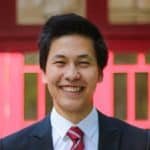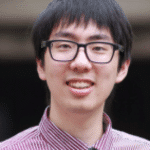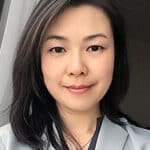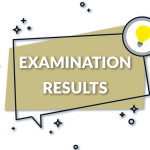Science Tuition In Singapore
Annually, our tutors always help students of all abilities to achieve their academic goals
About 35% of our clients are MOE teachers and university/NIE lecturers. They trust what our tutors teach their own children.
The proven expertise of our carefully-chosen star tutors makes it possible for students' grades to improve between 10 to 30 marks in 2 semesters.
Our 5 co-founders are former senior teachers/HODs from Singapore's top primary/secondary schools and junior college.
We have over 33,000 active and experienced tuition teachers, and will show you tutor profiles within 6 hours.
Science Tuition In Singapore | Tuition For Science | Science PSLE | Best Science Tuition Singapore | Science Tuition Secondary
Since 2011, Professional Tutors Singapore has been the consistent leader in the education industry because of the quality of our tutors.
Every year, the syllabus gets more difficult, and the exam requirements are increasingly more demanding.
Competition to get into the good classes and universities is very intense.
Stress levels are sometimes overwhelming, and parents are worried that their children will be left behind or excluded once they get erratic grades.
Professional Tutors has established a very strong reputation for our ability to attract the best and most successful tuition teachers in Singapore to be part of our team.
Outstanding, high-quality and credible tutors make it possible for our students to receive the reliable and effective academic help that they need, in order to perform much better.
Our 33,000 qualified tutors have 2 clear objectives:
1. Dependably and systematically prepare you for your next assessment/exam
2. Quickly and competently help you score maximum marks for each exam section
Take Control Of Your Grades Today
Primary School Tuition
Secondary School Tuition
Integrated Programme Tuition
International Baccalaureate Tuition
Junior College Tuition
Polytechnic Tuition
University Modules Tuition
Science Tuition In Singapore | Tuition For Science | Science PSLE | Best Science Tuition Singapore | Science Tuition Secondary
Hire Singapore's Most Successful Tuition Teachers
Science Tuition In Singapore | Tuition For Science | Science PSLE | Best Science Tuition Singapore | Science Tuition Secondary
Tutors: Please ensure that you have registered at: https://professional-tutors.com/tuition-jobs-better-assignments-fast/
We are not able to accept any tutor registrations through this Hire Tutors Form. Thank you.
Science Tuition In Singapore | Tuition For Science | Science PSLE | Best Science Tuition Singapore | Science Tuition Secondary
We are confident that you will succeed








Singapore's largest team of qualified tutors
- Choose from MOE teachers, experienced tuition teachers with PhD/Master’s/Bachelor’s, or who are proficient university undergraduates
- Whether your dream is to start your own business, or to work for a prestigious MNC – the most important and useful immediate objective would be to receive the best academic guidance now, so that your grades can open many more important doors for you
- Annually, our tutors always help students of all abilities to achieve their academic goals
Satisfied clients every year since 2011
- Students benefit from our experience, quality tuition teachers, track record, and superior reputation
- Within 6 hours, our 20+ resourceful tuition coordinators (all of them have graduated from NUS, NTU and SMU) ensure that you can easily choose and hire the ideal tutor that fits your criteria
- 100% successful matches. Every time
- No agency fees. You pay only for lessons conducted
Science Tuition In Singapore | Tuition For Science | Science PSLE | Best Science Tuition Singapore | Science Tuition Secondary
Proven methods to score higher grades
- Our private tutors show you the important patterns and links in each chapter, and how to answer challenging application questions
- We teach you why and how to focus on the most crucial aspects of textbook content
- You will learn correct answering techniques so that your responses are specific and never off-point
- Practice worksheets/past exams with an acknowledged expert, so that your mistakes can be quickly and patiently corrected
Latest MOE syllabus, and exam marking scheme requirements
Our experienced and committed tutors will help you:
- Answer difficult exam questions
- Correctly prepare for your homework/projects
- Understand and revise every chapter
- Learn ahead of the syllabus
- Identify, avoid and prevent careless mistakes
Science Tuition In Singapore | Tuition For Science | Science PSLE | Best Science Tuition Singapore | Science Tuition Secondary
We have the education industry's most admired tutor database
- Tutors know that we are very careful and highly selective during the matching process
- We do not accept under-performing tutors in our team/database
- Professional Tutors therefore attracts tuition teachers who have already acquired and maintained an impressive track record of helping their students’ grades consistently and substantially improve
Our 5 co-founders collectively have over 70 years of experience in the field of education
- Also, our Advisory Panel comprises former MOE school principals, subject Heads of Department, and senior teachers
- This ensures that our tutors are firmly on track to teach the latest MOE syllabus, and are familiar with the exam requirements and marking schemes, as well as the requisite answering techniques
Critical thinking is very important to obtaining strong overall analytical skills.
Effective critical thinkers are able to think clearly and rationally and understand the logical relations between data points and ideas.
Data and content form the core of the essence of what you need to learn for your exams.
You need to identify patterns in the data and content that are given in your text books, and also to correctly convey your analysis of the data to exam markers, in order to earn crucial exam marks.
In every exam/assessment that we take from P1 to post-doctoral level – and especially once we start working after graduation – we need to objectively analyze complex problems to form a judgment and the best response to make.
When you want to arrive at rational answers, critical thinking is a very important skill to master.
There are a few different types of logical thinking, including:
- Inference: Assuming an answer based on facts we already know
- Inductive reasoning: Observing a specific pattern, then making a general conclusion
- Deductive reasoning: Observing a general premise, then applying it to a specific situation
Are you an analytical thinker?
An analytical thinker is a person driven by curiosity to get to the bottom of things and is then able to solve a problem or find an answer.
They do not assume anything about the problem at hand.
Instead, they begin by questioning everything about the issue.
You can start to develop these good analytical thinking habits listed below (some, but not all of these qualities may be found in a person with an analytical nature):
- Search for information and evidence.
- Analytical thinkers will find and evaluate every bit of information they can accumulate on a particular subject or challenge before arriving at a decision
- Develop logical and systematic processes.
- Rarely will an analytical thinker be swayed by emotion.
- Usually, this individual will use linear thinking to arrive at a sound, sensible, well-thought-out conclusion.
- Logical thinkers tend to embrace structure and rules.
- Most analytical thinkers like to work in a well-organized way.
- When you are organized, you will be thorough in your work and never miss out on important information that needs to be reviewed and considered.
- For example, if you develop a keen interest in an area, you’ll make sure you learn as much as possible about that field and become an expert.
- This is the kind of professionalism and attention to detail that businesses (and your exam markers) are looking out for.
- Start having routines in your daily life.
- Analytical thinkers enjoy routines and have steady, established habits.
- They prefer to know what and when something is going to happen. Daily life is often based around routines.
- They have an innate ability to concentrate, which means they usually like to work independently or in small teams.
- Develop sharp memory skills.
- It is common for an analytical thinker to thrive on learning new information – and once learned, that information is never forgotten.
- Analytical thinkers have exceptional memories, although they can opt to forget information that they do not consider critical to solving their current problem.
- Analytical thinkers can also be curious and observant.
- Get in the habit of asking “how?” and “why?”.
- They tend to be modest: it’s difficult to be curious and observant when one is arrogant and thinks that he/she already knows everything.
- You can consciously observe and analyze your surroundings.
- When you are highly perceptive, your mind is geared towards taking a bird’s eye view of things which enables you to consider the whole picture.
- This also means that you’ll be able to visualize how parts of a project fit together.
- You’ll be in a better position to foresee and predict how minor changes and adjustments can affect the outcome and make astute decisions.
- Get in the habit of forcing yourself to analyze seemingly obvious truths about the world.
- When you are always prepared and can handle risk well, it becomes highly unlikely that you will be shocked when faced with problematic situations.
- Your preparedness and risk management skills will help you ensure that you have predicted any potential threats to being able to answer difficult exam questions, and are already prepared with a plan of action.
- Analytical thinkers are known for spotting problems from far away, and being ready to meet challenges head-on.
If you can identify with the qualities above and prefer strategy and creativity over socializing and networking, chances are you’re an analytical thinker.
Whether you struggle with analytical thinking or seem to have natural analytical abilities, you can always improve your skills.
Visualization, creativity, and having a growth mindset – the ability to embrace new technologies and upgrade skills – are key to the analytical thinker’s success jobs that pay high salaries.
Analytical skills are used when detecting patterns and trends, brainstorming new ideas, observing data, collecting data, interpreting data, integrating new information, synthesizing information, and making decisions on what solutions to implement in a productive manner.
Analytical skills refer to a person’s ability to assess relevant information and facts, identify and define complex problems, investigate and extract crucial information from data, and find the best workable solutions to these problems.
According to LinkedIn, they are one of the top 10 most in-demand soft skills that employers always look for.
Analytical skills are highly transferable, making the analytical thinker an ideal fit for a variety of career fields.
The analytical thinker’s breadth and versatility of skills are the primary reason why employers look for this coveted trait.
Analytical and critical thinking skills allow employees to adapt and respond to new obstacles.
Company success often depends on employees who can efficiently and effectively analyze the vast amounts of data and information in the digital age.
Logical decision makers use fact-based, hard evidence to support their decisions and plans.
They arrive at their decisions after factoring every aspect of a situation and utilizing the best means of achieving the most optimal solution.
This results in successful outcomes because of the quality of decisions that they are able to make.
Companies that employ skilled analytical thinkers are better able to adapt and respond to new market conditions as well.
Accordingly, analytical skills show up frequently as a required quality in job descriptions.
For example, a sales job description may list qualitative analysis or predictive analysis as requirements.
Developing strong analytical skills is therefore vital to anyone who wants to succeed in their school/national exams and then when they start their careers.
You have to write analytically when you answer exam questions.
Analytical essays (even if they are only a few sentences long) provide a way to share your insights that provide substantive analysis of a topic.
A good analytical essay can explain and contextualize basic information for the exam marker.
Analytical responses serve two purposes: one for the reader and one for the writer.
Your exam marker wants to know how you have grown as a writer and thinker.
Your ability to write analytically will convince the exam marker that you have a strong grasp over the content that the question is testing you on.
What sets an analytical essay apart from a descriptive answer is the author’s point of view.
Analytical essays present an argument supported by evidence, whereas descriptive essays tend to be book summaries, film synopses, descriptive articles, and informative pamphlets that do not include analysis or opinion.
Similar to a good analytical essay, a strong descriptive essay will highlight its main points, organize given topics into body paragraphs, and use logical transitions.
Ultimately, however, descriptive essays summarize facts, while analytical essays delve into interpretation.
The best analytical essays offer a clear point of view, are well organized around a main idea, address opposing arguments, and are comprehensively supported by primary and secondary sources.
- You should start by choosing a point of view.
- No matter what you choose as your central point of view, you must be able to anchor your entire analytical essay around a singular thesis statement/point of view.
- Your introductory paragraph has to state your point of view.
- An excellent introduction will grasp your reader’s interest. It is therefore important that you take extra care in your opening paragraph.
- Good ways to start your essay would with a hook such as a bold statement.
- You should then provide a broad outline that addresses questions that the exam questions requires you to tackle.
- A good introduction concludes with a thesis statement that serves as the compass (ie “GPS”) for the entire essay.
- You then need to carefully organize the body of your essay.
- After your introductory paragraph, divide your essay into body paragraphs that dig deep into specific topics.
- All body paragraphs should serve the main goal of supporting your thesis statement, either by providing background information, delving into details, or providing contrasting viewpoints that each substantiate themselves.
- The number of body paragraphs will vary depending on the scope and length of your essay that the exam questions require from you.
- The structure of your essay is just as important as the subject of your essay, so do take the time to strategically plan each body paragraph.
- Your topic sentences must be clearly crafted.
- Each main body paragraph should begin with a topic sentence that both introduces the topic of the that specific paragraph, and then ties it to your main thesis.
- Populate your essay with evidence that is directly related to the exam question. Do not ramble or go off-point.
- The main body of the essay should be filled with a mixture of substance and analysis.
- You can convince your exam marker to give you higher marks only when you are able to provide solid evidence to back up your statements and point of view.
- Therefore, you must support the main points of your analysis with evidence taken from your textbooks or the research that you had previously conducted on this subject.
- You can make an argument stronger by acknowledging another point of view.
- Even if you do not agree with a critical perspective, you can still use a body paragraph to describe that point of view.
- You can then refute that argument with additional evidence and reasoning, strengthening your thesis/position on that issue.
- The summary is also very important.
- Wrap up your analytical essay with a concluding paragraph that recaps your argument.
- The concluding paragraph is not the place to introduce new evidence.
- Rather, it is the ribbon that you wrap around your entire essay, reminding your reader of your most important points and leaving them with some final convincing words for consideration of your point of view.
Perseverance means continuously working on a task despite having obstacles.
It means being hardworking and finishing what is started, even when barriers and problems arise.
Perseverance is an essential leadership skill.
It is more than just not giving up.
When you’re in a leadership role, perseverance is more of a problem-solving process that includes encountering a challenge, understanding why the challenge exists, finding a way to overcome the challenge and, above all, learning from the entire experience.
It is often what separates those that achieve success, and prevents disappointment for themselves and their team.
The satisfaction received from completing tasks and projects is very important to those who are able and want to persevere.
It means the willpower to work hard regardless of any obstacles, to be firm on achieving, and remaining consistent.
Sometimes we are unable to complete a task or get what we want when things don’t go our way.
However, by persevering, we can have better prospects of being successful.
Everyone who takes an idea and makes it into something valuable does it through hard work.
Tied very closely to hard work is perseverance, continuing forward without regard to discouragement, opposition, hurdles, or memories of previous failure.
Ultimately, perseverance is about being confident in your abilities and trusting that you’ll find a way through, if you persist.
Don’t be afraid to fail.
Perseverance comes from failing and getting back up.
Without failure, we cannot become resilient.
Therefore, we have to think of failure as a lesson, rather than a setback.
We can learn so much from failure that changing our attitude toward it can have amazing implications for our lives.
When we aim to be 1% better every day, we develop a growth mindset that is a great way to increase perseverance and motivation.
These are skills like any other types of talents that you want to develop, and try to improve upon them just 1% every day.
Keeping this concept in mind throughout the day is an excellent way to motivate ourselves.
Have you heard of the 40% Rule?
This Rule means that if you manage to complete 40% of the task, your likelihood of quitting drops dramatically.
So, work toward completing 40% of the task. Then the rest of the 60% is not that difficult/intimidating to complete.
Keep your goals in mind.
When we make mistakes or fail, many people will be tempted to give up altogether.
If we want to persevere, we need to keep our goals in mind at all times.
Start by writing down your short and long-term goals and place them somewhere that’s easy to access.
Ask yourself why you have chosen and then embarked on a certain goal.
Reflecting on that reminds us that the journey is worth our time.
Then, whenever there’s any discouraging event or comment, take a look at that list to inspire you and keep you moving forward.
Success can be a long and tough journey.
We should give ourselves rewards or encouragement along the way to the major goals.
The rewards can be anything from having a nice lunch, extra hours spent at the park, or a weekend break.
The rewards will keep reminding you of the progress you have made, and will provide continued motivation to persevere through difficult times.
The people who become successful are not the ones who are the most talented.
It’s the ones with the most endurance.
Whether the skill of perseverance comes easily to you or not, the best part is that there are so many ways for us to develop our mental resilience, which then helps our grades get better.
Self-motivation is the force that keeps pushing us to go on – it’s our internal drive to achieve, produce, develop, and keep moving forward.
When you think you’re ready to quit something, or you just don’t know how to start, your self-motivation is what pushes you to go on.
By setting a goal – anything from scoring 10 more marks for Maths, avoiding careless mistakes, or paying more attention in class – you are taking a big step toward improving your life.
However, following through to achieve what we’ve set out to accomplish can be challenging, especially on those days when our energy levels are low and we just don’t feel like putting in the work.
We all lose motivation from time to time.
When you’re feeling unmotivated, try one of these science-backed strategies to get yourself back on track toward your goal.
- Put your goal on the calendar and give yourself target dates. Whatever it is you’re aiming to accomplish, put the timelines on the calendar.
- If your goal lacks this structure, you can include it in your calendar by deciding on a date by which you could realistically achieve your goal.
- Having a target date not only helps you stay motivated, it also helps you track your progress – you always know how much further you have to go and how much you have already achieved.
- You can also draw a progress bar on a piece of paper that you can stick in front of your study area.
- Look at it regularly and fill it in as you get closer to your goal.
- This can have a big impact on your performance and determination to succeed.
- Set small goals that lead toward the main goal, in order to build momentum.
- Getting started is often the hardest part on low-motivation days, and starting is much easier when the task is small. Begin with five minutes of study first, then work your way up to an hour a day etc.
- Track your progress. Not every day will go exactly as planned, and that’s okay.
- We can’t predict everything that could happen, but we can predict some obstacles that are likely to happen from time to time based on our unique circumstances.
- Then when that obstacle pops up, instead of losing motivation and feeling deflated, you have a plan in place to keep the momentum going.
- Practice gratitude for every tiny step that you are making toward your small goals and eventual big goals.
- Research shows that frequent small successes can build a momentum that can in turn drive long-term success, especially early in the process.
- Whatever your big goal may be, start by breaking it down into smaller chunks, and it will be easier to achieve most or all of them.
- Reward yourself for the little wins as well as the big ones. Rewards can improve motivation and performance.
- Rewarding yourself for reaching small milestones and completing big goals could boost your interest and enjoyment in the work you’re doing.
- Spend a few minutes making your own reward list so that you’re ready to celebrate your wins, big and small.
- Improve your mood and mental health.
- A good mood has been linked to increased productivity, and improvement in both quality and quantity of our work.
- This doesn’t mean that you have to be positive all the time – being chirpy every minute of every day is not realistic.
- But if you’re feeling sluggish about working toward your goal, a quick mood lift could be enough to get you started.
- Having a change of your environment can help you approach your task with a fresh perspective (and a new sense of motivation).
- This is called the novelty effect – a short-term boost that comes from altering your environment or routine.
- Spend some time in nature (or at least get some sunlight while taking a nice walk around the neighbourhood).
- Try a different exercise routine.
- Watch funny videos on TikTok or YouTube.
Good ways to further motivate yourself would be to ask yourself:
- Why is this goal important to you?
- Why is that reason important to you?
Keep thinking about these until you get to your ultimate “why” – which is the core value that’s driving your goal.
What would it feel like to achieve your goal?
You know that it will feel great, and that promise of your happiness and sense of achievement will keep you focused on wanting to continue to do well.
Take control of your Science grades today
33,000 experienced private tutors
MOE teachers, tutors with proven track records,
PhD/Master's/Post-Doctoral tutors,
Graduated/Undergraduate dependable tutors
Mr MW has 3 years of Science tuition experience. He has a Bachelor’s in Materials Science & Engineering from NUS. Mr MW taught at a tuition centre for 1 year. His private tuition students attended Telok Kurau Primary School, Rosyth School, Haig Girls’ School, Fuhua Secondary School, Meridian Secondary School, and Victoria School.
Science Tuition In Singapore | Tuition For Science | Science PSLE | Best Science Tuition Singapore | Science Tuition Secondary
Ms THY has 11 years of Science tuition experience. She has a Bachelor’s in Chemical and Biomedical Engineering from NTU. Ms THY wrote the primary school Science curriculum for a group of tuition centres, where she taught for 6 years. Ms THY was an MOE contract teacher for 3 years. Her private tuition students attended Ngee Ann Primary School, Red Swastika School, Singapore Chinese Girls’ Primary School, Tao Nan School, St Gabriel’s Primary School, and Maha Bodhi School.
Ms CK has 9 years of Science tuition experience. She has a PhD in Electrical and Computer Engineering, from Cornell University. Her Bachelor’s in Electrical Engineering was from NUS (First Class Honours). Ms CK’s home tuition students attended Ai Tong School, Methodist Girls’ School (Primary), Nanyang Primary School, Cedar Girls’ Secondary School, Nan Hua High School, and Tanjong Katong Girls’ School.
Mr HFS has 12 years of Science tuition experience. He is NIE-trained and taught at top MOE schools for 7 years. Mr HFS has a Bachelor’s in Bioengineering from NTU (First Class Honours). Mr HFS’s private tuition students attended Montfort Junior School, Marymount Convent School, Kong Hwa School, CHIJ Primary (Toa Payoh) Primary, Anglo-Chinese School (Junior), and Canossa Catholic Primary School.
Ms VW has 17 years of Science tuition experience. She is NIE-trained and taught at MOE schools for 11 years. Ms VW has a Bachelor’s in Biomedical Engineering from NUS (Honours). Her home tuition students attended Unity Secondary School, Serangoon Secondary School, CHIJ St Joseph’s Convent, Ngee Ann Secondary School, St Andrew’s Secondary School, and Bukit View Secondary School.
Mr ENL has 9 years of Science tuition experience. He has a Master’s in Materials Science & Engineering from NUS. His Bachelor’s in Biochemical was from NTU (2nd Upper Class Honours). Mr ENL was an MOE contract teacher for 2 years. His private tuition students attended Raffles Girls’ Primary School, Shuqun Primary School, Henry Park Primary School, Bukit Batok Secondary School, Crescent Girls’ School, and Anderson Secondary School.
Science Tuition In Singapore | Tuition For Science | Science PSLE | Best Science Tuition Singapore | Science Tuition Secondary
Hire the best Science experts to help you succeed
A committed and skillful Science home tutor can make an important difference in how you understand the syllabus, and therefore achieve gains of 10 to 30 marks within 2 semesters
Mr OHC has 5 years of Science tuition experience. He has a Bachelor’s in Chemical Engineering from NUS. Mr OHC was an MOE contract teacher for 2 years. His home tuition students attended CHIJ (Kellock) Primary, Keng Cheng School, Rulang Primary School, Hua Yi Secondary School, Edgefield Secondary School, and Montfort Secondary School.
Science Tuition In Singapore | Tuition For Science | Science PSLE | Best Science Tuition Singapore | Science Tuition Secondary
Ms LYT has 4 years of Science tuition experience. She has a Bachelor’s in Computer Engineering from NUS. Ms LYT was an MOE contract teacher for 1 year. Her private tuition students attended Holy Innocents’ Primary School, Townsville Primary School, West View Primary School, Canberra Secondary School, Naval Base Secondary School, and CHIJ Katong Convent.
Ms KMM has 10 years of Science tuition experience. She has a Bachelor’s in Bioengineering from NTU (2nd Upper Class Honours). Her private tuition students attended Methodist Girls’ School (Primary), St Joseph’s Institution Junior, Tampines North Primary School, Commonwealth Secondary School, St Hilda’s Secondary School, and Presbyterian High School.
Ms BG has 8 years of Science tuition experience. She has a Bachelor’s in Mechanical Engineering from NTU (Honours). Ms BG was an MOE contract teacher for 3 years. Her private tuition students attended Fairfield Methodist School (Primary), Woodlands Primary School, Tampines Primary School, Regent Secondary School, Hai Sing Catholic School, and Maris Stella High School.
Mr CJP has 12 years of Science tuition experience. He has a Master’s in Biomedical Engineering from Duke University. His Bachelor’s in Biomedical Engineering was from NUS (First Class Honours). Mr CJP was the Head of Science at a leading group of tuition centres where he taught for 7 years. Mr CJP’s private tuition students attended St Andrew’s Junior School, Anglo-Chinese School (Primary), St Margaret’s Primary School, Anglo-Chinese School (Barker Road), Presbyterian High School, and CHIJ St Nicholas Girls’ School.
Mr AW has 10 years of Science tuition experience. He is NIE-trained, and taught at MOE schools for 8 years. Mr AW has a Bachelor’s in Biomedical Engineering from NUS. His private tuition students attended Yumin Primary School, Xishan Primary School, St Stephen’s School, Pei Chun Public School, Sengkang Green Primary School, and Catholic High School – Primary.
Science Tuition In Singapore | Tuition For Science | Science PSLE | Best Science Tuition Singapore | Science Tuition Secondary
Ms JH has 10 years of Science tuition experience. She has a Master’s in Biomedical Engineering from Imperial College London. Ms JH has a Bachelor’s in Biomedical Engineering from NUS (First Class Honours). Her private tuition students attended Anglo-Chinese School (Primary), CHIJ Our Lady of the Nativity Primary, St Margaret’s Primary School, Anglican High School, Maris Stella High School, St Andrew’s Secondary School.
Mr AA has 9 years of Science tuition experience. He has a Bachelor’s in Materials Science and Engineering from NTU. Mr AA was an MOE contract teacher for 1 year. His home tuition students attended St Gabriel’s Primary School, Tampines North Primary School, River Valley Primary School, Pei Hwa Secondary School, Orchid Park Secondary School, and Hai Sing Catholic School.
Science Tuition In Singapore | Tuition For Science | Science PSLE | Best Science Tuition Singapore | Science Tuition Secondary
Mr XK has 5 years of Science tuition experience. He has a PhD in Electrical and Computer Engineering from Johns Hopkins University. Mr XK’s Bachelor’s in Biochemistry was from NTU (First Class Honours). His private tuition students attended River Valley High School, St Anthony’s Canossian Secondary School, Maris Stella High School, Whitley Secondary School, CHIJ St Nicholas Girls’ School, and Anglo-Chinese School (Independent).
Ms CO has 7 years of Science tuition experience. She has a Bachelor’s in Biomedical Engineering from NUS. Ms CO was an MOE contract teacher for 1 year. She taught at tuition centres for 3 years. Ms CO’s home tuition students attended Westwood Primary School, St Hilda’s Primary School, Yu Neng Primary School, Hillgrove Secondary School, Kranji Secondary School, and CHIJ St Joseph’s Convent.
Ms PKJ has 12 years of Science tuition experience. She is NIE-trained and taught at MOE schools for 7 years. Ms PKJ has a Bachelor’s in Civil and Environmental Engineering from NTU (Honours). Ms PKJ’s private tuition students attended Holy Innocents’ Primary School, Yangzheng Primary School, Rosyth School, Northoaks Primary School, Haig Girls’ School, and Nan Chiau Primary School.
Ms MS has 3 years of Science tuition experience. She has a Bachelor’s in Mechanical Engineering from NTU. Ms MS taught at tuition centres for 2 years. Her private tuition students attended Wellington Primary School, Nanyang Primary School, St Stephen’s School, Greendale Secondary School, CHIJ St Theresa’s Convent, and Fairfield Methodist School (Secondary).
Ms TKM has 6 years of Science tuition experience. She has a Bachelor’s in Biomedical Engineering from NUS (First Class Honours). Ms TKM taught at a top tuition centre for 3 years. Her home tuition students attended St Andrew’s Junior School, Kuo Chuan Presbyterian Primary School, Catholic High School – Primary, Hai Sing Catholic School, Ngee Ann Secondary School, and St Patrick’s School.
Mr WNY has 11 years of Science tuition experience. He has a Bachelor’s in Mechanical Engineering from NTU. Mr WNY was an MOE contract teacher for 3 years. He taught at a leading tuition centre for 5 years. Mr WNY’s private tuition students attended Nan Hua Primary School, Poi Ching School, Fernvale Primary School, Mayflower Secondary School, Hai Sing Catholic School, and St Anthony’s Canossian Secondary School.
Mr SCA has 8 years of Science tuition experience. He has a Bachelor’s in Engineering Science from NUS. Mr SCA was an MOE contract teacher for 3 years. He taught at tuition centres for 6 years. Mr SCA’s private tuition students attended Marymount Convent School, Pioneer Primary School, North Spring Primary School, CHIJ St Joseph’s Convent, Geylang Methodist School (Secondary), and Montfort Secondary School.
Ms HST as 9 years of Science tuition experience. She has a PhD in Bioengineering from NUS. Ms HST’s Bachelor’s in Biochemical Engineering was from NTU (First Class Honours). Her private tuition students attended Methodist Girls’ School (Primary), Nanyang Primary School, Anglo-Chinese School (Junior), Singapore Chinese Girls’ Secondary School, St Margaret’s Secondary School, and Presbyterian High School.
Ms FG has 14 years of Science tuition experience. She is NIE-trained and taught at MOE schools for 9 years. Ms FG has a Bachelor’s in Chemical and Biomedical Engineering from NTU (2nd Upper Class Honours). Ms FG’s private tuition students attended Holy Innocents’ High School, Bartley Secondary School, CHIJ Katong Convent, Dunman High School, Commonwealth Secondary School, and Bukit Merah Secondary School.
Mr KWC has 8 years of Science tuition experience. Mr KWC has a Master’s in Materials Science & Engineering. He has a Bachelor’s in Bioengineering from NTU (2nd Upper Class Honours). Mr KWC was an MOE contract teacher for 2 years, and he taught at tuition centres for 3 years. Mr KWC’s private tuition students attended Gongshang Primary School, Innova Primary School, Methodist Girls’ School (Primary), Kuo Chuan Presbyterian Secondary School, Nan Chiau High School, and St Gabriel’s Secondary School.
Mr GHY has 13 years of Science tuition experience. He has a Bachelor’s in Environmental Engineering from NUS (2nd Upper Class Honours). Mr GHY was an MOE contract teacher for 3 years. He taught at tuition centres for 7 years. Mr GHY’s private tuition students attended Si Ling Primary School, Catholic High School – Primary, White Sands Primary School, Chua Chu Kang Secondary School, Crescent Girls’ School, and Jurongville Secondary School.
Ms DF has 4 years of Science tuition experience. She has a Bachelor’s in Chemical Engineering from NUS. Ms DF taught at a tuition centre for 1 year. Her home tuition students attended North Spring Primary School, Cedar Primary School, Elias Park Primary School, Bukit Panjang Govt. High School, Yishun Secondary School, and Paya Lebar Methodist Girls’ School (Secondary).
Ms AT has 9 years of Science tuition experience. She has a Bachelor’s in Chemical and Biomedical Engineering from NTU. Ms AT was an MOE contract teacher for 1 year, and taught at tuition centres for 3 years. Her private tuition students attended Keng Cheng School, Raffles Girls’ Primary School, Qifa Primary School, Loyang View Secondary School, Peicai Secondary School, and St Gabriel’s Secondary School.
Mr KW has 17 years of Science tuition experience. He has a Master’s in Biophysics from Harvard University. His Bachelor’s in Biomedical Engineering was from NUS (First Class Honours). His private tuition students attended St Margaret’s Secondary School, Presbyterian High School, Methodist Girls’ School (Secondary), Hai Sing Catholic School, Catholic High School, and Anglo-Chinese School (Barker Road).
Ms TJY has 8 years of Science tuition experience. She has a Bachelor’s in Computer Engineering from NUS (Honours). Her home tuition students attended Xinmin Primary School, Guangyang Primary School, Fengshan Primary School, Peicai Secondary School, North Vista Secondary School, and Gan Eng Seng School.
Ms HHE has 15 years of Science tuition experience. She is NIE-trained and taught at MOE schools for 11 years. Ms HHE has a Bachelor’s in Biomedical Engineering from NUS (Honours). Her private tuition students attended Marymount Convent School, Nan Chiau Primary School, St Andrew’s Junior School, Rosyth School, Yio Chu Kang Primary School, and Singapore Chinese Girls’ Primary School.
Ms CN has 9 years of Science tuition experience. She is NIE-trained and taught at MOE schools for 6 years. Ms CN has a Bachelor’s in Civil Engineering from NTU. Her private tuition students attended Mee Toh School, CHIJ (Kellock) Primary, Townsville Primary School, Oasis Primary School, Punggol Green Primary School, and Rosyth School.
Ms RK has 12 years of Science tuition experience. She has a Master’s in Chemistry from NUS and a Bachelor’s in Biomedical Engineering from NTU (2nd Upper Class Honours). Her home tuition students attended Kong Hwa School, Methodist Girls’ School (Primary), Singapore Chinese Girls’ Primary School, St Patrick’s School, Nan Chiau High School, and Geylang Methodist School (Secondary).
Mr PT has 14 years of Science tuition experience. He was an MOE contract teacher for 4 years and taught at tuition centres for 7 years. Mr PT has a Bachelor’s in Mechanical Engineering from NUS. His home tuition students attended Nanyang Primary School, St Hilda’s Primary School, Anglo-Chinese School (Barker Road), Holy Innocents’ High School, and Ngee Ann Secondary School.
Ms RC as 11 years of Science tuition experience. She has a PhD in Bioengineering from NUS. Ms RC’s Bachelor’s in Biochemical Engineering was from NTU (First Class Honours). Her private tuition students attended Methodist Girls’ School (Primary), Nanyang Primary School, Anglo-Chinese School (Junior), Singapore Chinese Girls’ Secondary School, St Margaret’s Secondary School, and Presbyterian High School.
Ms BW has 15 years of Science tuition experience. She is NIE-trained and has a Bachelor’s in Biomedical Engineering (2nd Upper Class Honours) from NTU. Ms BW’s private tuition students attended Anglo-Chinese School (Primary), Kong Hwa School, Singapore Chinese Girls’ Primary School, CHIJ St Joseph’s Convent, Geylang Methodist School (Secondary), and St Andrew’s Secondary School.
Mr JY has 7 years of Science tuition experience. He has a Bachelor’s from NUS, majoring in Chemical Engineering. Mr JY was an MOE contract teacher for 3 years. His private tuition students attended St Margaret’s Secondary School, Singapore Chinese Girls’ Secondary School, Montfort Secondary School, Maris Stella High School, Catholic High School, and Hai Sing Catholic School.
Our tutors always help students of all abilities to achieve their academic goals
Your Science tuition teacher will clearly explain to you:
- Physical Quantities, Units and Measurement
- SI units
- Prefixes
- Scalars and vectors
- Measurement of length and time
- All physical quantities consist of a numerical magnitude and a unit
- The orders of magnitude of the sizes of common objects ranging from a typical atom to the Earth
- Distance-time graph and a speed-time graph
- Balanced and unbalanced forces
- Free-body diagram
- Newton’s Laws
- Mass, Weight and Density
- Gravitational field and field strength
- Moment of a force (or torque) = force × perpendicular distance from the Pivot
- Kinetic energy, potential energy (chemical, gravitational, elastic), light energy, thermal energy, electrical energy and nuclear energy
- Molecular structure of solids, liquids and gases, relating their properties to the forces and distances between molecules and to the motion of the molecules
- Motion of molecules and temperature
- Increase in its internal energy (random thermal energy)
- Melting/solidification and boiling/condensation as processes of energy transfer without a change in temperature
- Longitudinal and transverse waves
- Speed, frequency, wavelength, period and amplitude. Wavefront
- Thin converging lenses
- The angle of incidence is equal to the angle of reflection and use this principle in constructions, measurements and calculations Refractive index
- Electromagnetic Spectrum
- Critical angle and total internal reflection
- Speed of sound
- Longitudinal nature of sound waves in terms of the processes of compression and rarefaction
- Loudness of a sound wave to its amplitude and pitch to its frequency
- Principles of electrostatics
- Positive and negative charges and that charge is measured in coulombs
- Conventional current and electron flow
- Electromotive force
- Rate of flow of charge and that it is measured in amperes
- Electromotive force, driving a unit charge around a complete circuit
- Determine the resistance of a metallic conductor using a voltmeter and an ammeter, and make the necessary calculations
- Proportionality between resistance and the length and cross-sectional area of a wire to new situations
- Kinetic particle theory
- Atomic structure
- Ionic bonding
- Covalent bonding
- Interconversion in terms of the kinetic particle theory and of the energy changes involved
- The relative charges and approximate relative masses of a proton, a neutron and an electron (nucleons) in the nucleus and electrons arranged in shells (energy levels)
- Proton number (atomic number) and nucleon number (mass number)
- Elements, compounds and mixtures
- Ionic bonding
- Formation of ions by electron loss / gain in order to obtain the electronic configuration of a noble gas
- The structure of an atom as containing protons and neutrons
- The formation of ionic bonds between metals and non-metals
- The physical properties (including electrical property) of ionic compounds to their lattice structure
- Relative molecular mass, and calculate relative molecular mass (and relative formula mass) as the sum of relative atomic masses
- Calculate stoichiometric reacting masses and volumes of gases
- Calculations involving the limiting of reactants
- Solution concentration to process the results of volumetric experiments
- Exothermic as a process or chemical reaction which transfers energy, often in the form of heat, to the surroundings and may be detected by an increase in temperature, e.g. the reaction between sodium hydroxide and hydrochloric acid
- Endothermic as a process or chemical reaction which takes in energy, often in the form of heat, from the surroundings and may be detected by a decrease in temperature, e.g. the dissolving of ammonium nitrate in water
- Chemical Reactions
- Speed of reaction
- Redox
- The effect of concentration, pressure, particle size and temperature on the speeds of reactions and explain these effects in terms of collisions between reacting particles
- Oxidation and reduction (redox) in terms of oxygen/hydrogen gain/loss
- Electron transfer and changes in oxidation state
- Aqueous potassium iodide and acidified potassium manganate in testing for oxidising and reducing agents from the resulting colour changes
- Acids and bases
- Acid and alkali in terms of the ions they produce in aqueous solution and their effects on Universal Indicator
- Hydrogen ion concentration and hence relative acidity using Universal
- Indicator and the pH scale
- Characteristic properties of acids as in reactions with metals, bases and carbonates
- Reaction between hydrogen ions and hydroxide ions to produce water, as neutralisation
- Controlling the pH in soils and how excess acidity can be treated using calcium hydroxide
- Characteristic properties of bases as in reactions with acids and with ammonium salts
- Oxides as acidic, basic, amphoteric or neutral based on metallic / non-metallic character
- The Periodic Table as an arrangement of the elements in the order of increasing proton (atomic) number
- Position of an element in the Periodic Table is related to proton number and electronic structure
- Change from metallic to non-metallic character from left to right across a period of the Periodic Table
- Number of valency electrons and metallic /non-metallic character
- Reactivity series
- Solids having high melting and boiling points, being malleable and good conductors of heat and electricity
- Alloys as a mixture of a metal with another element, e.g. brass; stainless steel
- The ease of obtaining metals from their ores by relating the elements to their positions in the reactivity series
- Lithium, sodium and potassium in Group I (the alkali metals) as a collection of relatively soft, low-density metals showing a trend in melting point and in their reaction with water
- Chlorine, bromine and iodine in Group VII (the halogens) as a collection of diatomic non-metals showing a trend in colour, state and their displacement reactions with solutions of other halide ions
- The essential reactions in the extraction of iron using haematite, limestone and coke in the blast furnace
- Volume composition of gases present in dry air as being approximately 78% nitrogen, 21% oxygen and the remainder being noble gases (with argon as the main constituent) and carbon dioxide
- Common atmospheric pollutants, e.g. carbon monoxide; methane; nitrogen oxides; ozone; sulfur dioxide; unburned hydrocarbons
- Alkanes
- Alkenes
- Carboxylic acids
- Cell structures (including organelles) of typical plant and animal cells from diagrams, photomicrographs and as seen under the light microscope
- Chloroplasts
- Cytoplasm
- Cell vacuoles
- Xylem vessels
- Starch (iodine in potassium iodide solution)
- Reducing sugars (Benedict’s solution)
- Protein (biuret test)
- Fats (ethanol emulsion)
- Polypeptides and proteins from amino acids
- ‘Lock and key’ hypothesis (an active site, enzyme-substrate complex and enzyme specificity)
- The functions of main regions of the alimentary canal and the associated organs: mouth, salivary glands, oesophagus, stomach, duodenum, pancreas, gall bladder, liver, ileum, colon, rectum, anus, in relation to ingestion, digestion, absorption, assimilation and egestion of food
- Dicotyledonous leaf
- Distribution of chloroplasts – photosynthesis
- Stomata and mesophyll cells – gaseous exchange
- Vascular bundles – transport
- Transpiration and translocation
- Larynx, trachea, bronchi, bronchioles, alveoli and associated capillaries and state their functions in human gas exchange
- Sensory neurones, relay neurones and motor neurones
- Energy losses between trophic levels and infer the advantages of short food chains
- Radiation and chemicals as factors which may increase the rate of mutation
Hire the correct tuition teacher so that you are battle-ready when you read the Science exam questions
Science Tuition In Singapore | Tuition For Science | Science PSLE | Best Science Tuition Singapore | Science Tuition Secondary
Tutors Singapore | Tuition At Home | Singapore Tutor | Tuition Agency In Singapore | Tuition Agent
Tuition Assignments - Choose from over 100+ new daily private tutor jobs
Science Tuition In Singapore | Tuition For Science | Science PSLE | Best Science Tuition Singapore | Science Tuition Secondary
Register As A Tutor - Good Rates, Many New Assignments Daily
Science Tuition In Singapore | Tuition For Science | Science PSLE | Best Science Tuition Singapore | Science Tuition Secondary
Parents: Please ensure that you have registered at: https://professional-tutors.com/hire-home-tuition-teachers-improve-top/
We are not able to accept any parent registrations through this Tutor Registration Form. Thank you.



